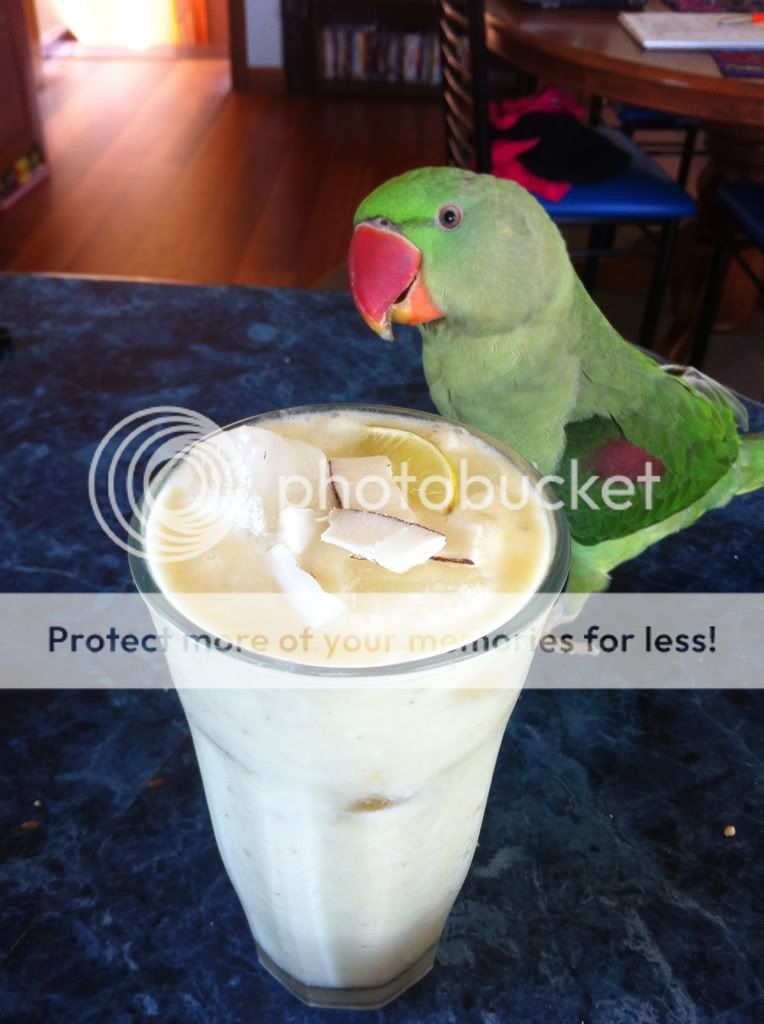Camille
New member
Hi all,
I am just curious about cage aggression and territoriality. I read somewhere in the board that it only happens in females as their cage is their nest. Is there any truth in this?
I'm trying all types of strategies to combat this, but I think I'll definitely have to get another sleep cage.
What is your Alex like?
Floyd is very independent, only barely tolerating pats. But loves giving kisses. He is absolutely driven by food, but loses concentration easily in training sessions. He is very curious, which gets himself into trouble.
This is him investigating my smoothie

I am just curious about cage aggression and territoriality. I read somewhere in the board that it only happens in females as their cage is their nest. Is there any truth in this?
I'm trying all types of strategies to combat this, but I think I'll definitely have to get another sleep cage.
What is your Alex like?
Floyd is very independent, only barely tolerating pats. But loves giving kisses. He is absolutely driven by food, but loses concentration easily in training sessions. He is very curious, which gets himself into trouble.
This is him investigating my smoothie
